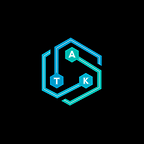DAOs: A New and More Democratic Way to Consolidate People Thanks to Blockchain
Decentralized Autonomous Organizations, or DAOs, have existed since the dawn of civilization. However, blockchain technology has now enabled them to operate on a much larger scale and with ease never seen before. Moreover, they are more efficient than conventional organizations because they are more decentralized, as indicated by the name.
First, let’s talk about what DAOs are and how they work.
What are DAOs?
DAOs are organizations that are built with blockchain and smart contracts.
In most DAOs, decisions are decided through voting. Voting can take place on various topics and in a variety of formats. Making one decision, for example, will require the permission of a large percentage. It could also be the simple majority of people who vote in a survey, the “liquid democracy” system, and various other things.
A “governance coin” is used to distribute voting power in DAOs. DAO’s governance coin is a crypto token with administrative functions. A member’s voting power is proportional to the number of tokens they own. A DAO can also specify the rules for the voting structure of the DAO.
For example, DAO members can vote to change their shared ledger or distribute the organization’s financial assets. Some vote outcomes, like cash transfers, are automatically performed on the blockchain level, but voting can be about any aspect of the organization’s functioning. There are many models for DAO activity and governance based on its purposes.
New to trading? Try crypto trading bots or copy trading
Why DAOs?
A DAO can be a major company or a small not-for-profit organization. It could be a parent committee at a school or residents of a multi-unit complex working together on day-to-day difficulties.
The ConstitutionDAO, a group of individuals who chipped in to purchase one of the earliest drafts of the United States constitution, is the most recent illustration of how decentralized autonomous organizations might operate. They wanted to show that historical artifacts should be in the hands of the public, not just the elites. All DAOs have the same idea: to give the masses more autonomy and power.
How to Earn Profit From DAOs
The division of earnings within an organization is the next practical DAO feature, crucial for for-profit DAOs. There are three ways people can make money from DAOs:
- The simplest solution is to regularly accumulate earnings in the shared ledger and distribute them on a pro-rata basis to governance token holders, similar to how dividends operate.
- Another alternative is to sell the governance token and purchase it back. This boosts the price of the governance token by lowering its supply, thereby indirectly distributing dividends.
- An intriguing variant of the repurchase option can be implemented if the governance token acts as the DAO’s utility token. The earnings would be accumulated in the DAO’s native token if it solely collects fees in this token. As a result, it might burn it instead of distributing the token. This seems similar to the repurchase option in that it decreases the amount of money in circulation.
Surprisingly, while the first two options are comparable to typical organizations, the third option is only available to DAOs. It’s better than traditional buybacks since tokens are removed from circulation when the DAO obtains money. This is the same as paying corporate profits as dividends as soon as income is received.
An important thing to note here is that governments strictly control stablecoins. For example, registration as securities or acquiring a bank license are two common criteria that make stablecoin issuing more complex and open to various lawsuits. As a result, governments will most likely use their ability to exert pressure on stablecoin issuers to increase the use of Central Bank Digital Currencies (CBDCs).
Advantages of DAOs
DAOs have the following advantages over traditional organizations:
- DAOs have a better decision-making process. In contrast to centralized decision-making, decentralized decision-making allows more individuals to contribute their knowledge and perspective, resulting in better outcomes.
- Organization members tend to be more active in DAOs. People love engaging in activities where they feel like they belong and their views are heard. Members of DAOs are more likely to be active participants since they know their contribution is inclined to make a difference.
- Members and stakeholders are treated more fairly. It makes perfect sense to vote in a company you have invested in rather than being at the mercy of centralized management.
Drawbacks of DAOs
- On the cryptographic protocol level, people can manipulate vote results by taking advantage of vulnerabilities in the code. As a result, it’s critical to undertake a thorough security audit, so errors and bugs can be removed.
- Some decisions aren’t possible to implement with smart contracts. Voting, for example, may be used to prevent money withdrawal from the smart contract but not from the bank account. Unfortunately, it allows for a certain amount of misuse, so DAOs should have a complex governance structure where everything is checked regularly.
- There’s always a possibility that members will stop being active in the DAO. The dedication and participation of members are the strength of DAOs, but if they burn out, the organization may suffer. DAOs should never cease building the community, recruiting new members, and engaging current ones.
